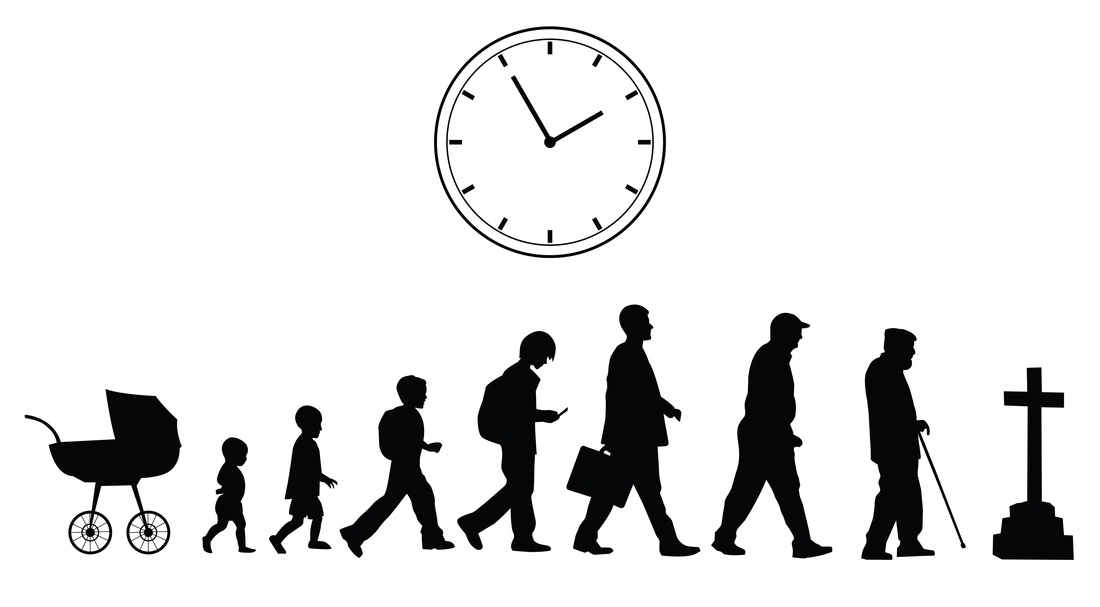|
By James Allen
Recently, I had the opportunity to meet the parents of a "star" student who will soon be graduating from high school. Yes, she's pretty, smart, athletic, talented, socially skilled, etc., but there is something beyond all of that that makes her stand out. As I spent time talking to her parents, it became more clear as to why that is. As we discussed some of her many accomplishments, her father shared about how he always encouraged both of his children not to be afraid of failure, but to go ahead and try new things. Her mother also encouraged her to use her creativity and talents to contribute in meaningful ways to the community around her even from a young age. By giving her a safe, supportive environment to “try her wings”, this young lady now stands out among her peers as a real leader. The best thing about it is that she hardly even seems to realize what a leader she is because it just flows so naturally out of her. This discussion hit home to me just how key it is to success in life to not be afraid to try new things. Too often we get caught in the paralysis of analysis when it comes to actualizing our dreams because, quite frankly, we’re afraid of failure. We would do well to get more comfortable with the idea of failing. I am reminded of the example of Peter in the Bible. Of all Jesus’ disciples, it seems like he was always the one who was most willing to try the new thing and yet fail (e.g. walking on water). What strikes me, though, is the fact the Jesus knew he would fail, and let him try anyway. We see this so clearly when he tells Peter that he is going to deny him three times before he was crucified, which Peter said he would never do, but sure enough, he does anyway. What is so beautiful about this failure experience is how it changed Peter. Jesus did not condemn Peter for failing him, but restored him to a place of great authority, which he probably would not have realized had he not gone through the failure experience. God works the same way with all of us. He calls us to things that are beyond our ability to accomplish in our own strength, but if we will take the first step out of faith and obedience to him, suddenly we realize His power that has been there all along working in and through us in way we would never have dreamed possible. Yes, we may fall flat on our faces in the process at times, but God is always right there to pick us up, restore and strengthen us. So what failure are you afraid of? Is it interfering with your ability to take the next step forward that you need to take? If so, just remember that God’s got you covered. He’s a safe place you can always come back to if you do fail, but equally important, you won’t see what he can do through you if you never take the step to try.
7 Comments
by James Allen With American Thanksgiving being celebrated this week it seems appropriate to say something about giving thanks and just what a powerful thing it is.
by Dr. Peter Stuart
A strange thought I know. Assuming you are going to Heaven, how old do you think you'll be and does God see you as your current age? Or, does he see you as your ideal age (whatever that may be). When He sees you does he see a 21, 49 or 75 year old? When it comes to aging, an image I have is that of a Travelator. You know, the flat escalator you see at the airport. God has given each one of us our own Travelator that moves us through this life. Of course we are all on the same date on our Travelator - today's date. For the younger ones their Travelator up to this point is shorter than for those that have been around for a while. Our Travelator is moving. Time is passing. We do not know where the end of our Travelator will be. We can't slow it down. Most definitely we can make the movement or "Journey" more pleasant by taking care of ourselves spiritually, mentally and physically. Or, we can make it not so pleasant by neglecting these things. When we get to the end and pass on into eternity we are no longer under the confines of "The Travelator". We have arrived! I suppose the reason I'm thinking this way is because I recently had a birthday and I realize I'm not getting any younger. I know I have the choice to resist or embrace the fact that I'm moving further down my Travelator. But what is age anyway? The way I understand it, in Heaven my daughters, Alix and Jordan, will be my sisters (in Christ). Come to think of it my Mother will also be my sister. So what do I do with this change in perspective? If this is the case how should we live and interact with other people now? How should we relate to our friends, family, co-workers etc..? I think we should worry less about the smaller, non-eternal problems and try to focus more on the things that matter - beyond the "Travelator". I will leave you to ponder the following quote by Elizabeth Barrett Browning: “Earth’s crammed with Heaven and every common bush afire with God; but only he who sees takes off his shoes.” How much of Heaven are you seeing in your journey here on earth? By James Allen
Innate within the human soul is a God-given desire to be a part of something bigger than ourselves. Many of us get excited when it comes to dreaming big dreams but too often when it comes down to actually making them happen, we have no idea where to start! I am blessed to be married to a woman who grew up in an environment where she saw many big dreams become reality in her life and the lives of those around her. I remember early on in our relationship being rather shocked when I first shared with her some of my big dreams. Rather than the, "Oh wouldn't that be nice" kind of response I was used to, she really took me seriously and started asking me about how I would start making them happen! Needless to say, that was the start of an amazing adventure that continues today. I have learned that a crucial step in making your dreams become reality is learning how to take your dream and break it down into smaller steps. This does take some time and effort, but it is well worth it. "But I don't even know what my big dream is" you say? Then that's where you need to start. Pray and ask God to clarify the unique passions, gifts, or talents he has given you. Ask trusted people who know you what they see as being unique and distinctive about you. Then, consider what needs you see in the world around you that really get you fired up. Where the need and your unique make-up intersect is where your dreams can really grow! Once you start to see the dream(s) more clearly, write it down as concisely as possible to make it more clear. Then start making it more concrete by doing the following: Dreams are often multi-faceted, so the next step is make some sub-categories of areas that you will need to work on in order to make your dream a reality. For example, are finances connected to it? Do you need any kind of further training? What relational work needs to be done? etc. After that, begin considering what 1-3 areas you need to focus on first. Studies show that focusing on one thing at a time and completing it is the way to success, not multi-tasking. Also, by taking steps in one area, we often make progress in other areas as a by-product. Now you are ready to start setting some goals. First, write down specifically what you want to see accomplished in a particular area. Make it SMART – Specific, Measureable, Attainable, Realistic and Time oriented. Then, think of and commit to 1-3 action steps you could take within the next couple of weeks to start make some progress. Take time to review your progress regularly, beginning by celebrating your successes, even if you only accomplished a small part of what you had set out to do. Any little change is better than none. From there, consider what you can do over the next couple of weeks to continue moving forward toward your goal. Having a positive, encouraging and committed person to help you through this process can make all the difference, even if it is via skype or email, so make it a priority to find the right person to journey with you through this process. If you don't have that person, Life Journey Centre can help by providing professional life coaching for you. Find out more by clicking here. By breaking your dreams down into doable steps, you can bring more of your passion into everyday life because you can better see how even your “small steps” are connected to God’s bigger picture. Perhaps the title of an old hymn sums it up best, Little is much when God is in it. Keep celebrating those “small” steps! They are often more significant than you realize!  by Sarah Stuart, LCSW God designed the transition process of the adolescent brain to prepare them for adulthood. The adolescent brain is under construction. Now more than ever, neuroscience has focused research on adolescent brain development. Researchers have discovered that the adolescent brain is far from completion. The brain is constantly changing until a person reaches into their 20's. The brain develops from the bottom up, like a stack of building blocks. The lower building blocks, the brain stem and the cerebellum, are the first areas of the brain to develop. They control basic body functions, physical balance, blood pressure and body temperature. This occurs between birth and approximately 12 years of age. The upper building blocks, the limbic system and the cerebral cortex, are referred to as the 'intellectual' or thinking brain. This development occurs between 12 years of age into the 20's. The limbic system is the emotional core of the brain. The pre-frontal cortex is where reason, logic and rational thinking originate. The pre-frontal cortex is not fully developed until the 20's. The predominant brain growth during adolescence is in the limbic system. So... the emotional brain (limbic system) is leading until the rational part (pre-frontal cortex) catches up in the 20's. The key to understanding your teen is to know that the emotional brain can dominate your teens’ growth and behaviors. Teens often use the word 'drama' to describe what their lives feel like. It is this drama that can make parenting and working with teens so challenging. You can promote a more peaceful adolescence and communicate more effectively by understanding how the teen brain thinks. Simply put, teens process information differently than adults. Teens = emotional brain (limbic system) Adult = rational brain (pre-frontal cortex) This means that teens are more likely than adults to respond emotionally to a situation! Teens may not be able to find the words to express their feelings. It also means that teens are prone to react more quickly and without considering the consequences of their actions. As they move through adolescence, teens learn to read others’ emotions, but they still frequently misinterpret how other people feel. Due to all the changes in the brains, teens get slower, for a while, at being able to identify emotions, both their own and others’. The developing adolescent brain is very vulnerable to stress and in emotionally charged situations teens may overreact. They may push the boundaries and break the rules. They may cry and get angry without an obvious reason. As the brain matures, teens will operate more and more from the pre-frontal cortex, were reasoning and judgment occur. When learning to ride a bike, parents prepare their children with some informative instruction before pushing them. Teens need the same kind of parental/adult guidance as they take their first independent steps. The teen's brain is acquiring the 'hardware' it needs for functional adulthood. But, the adolescent brain is not there yet. Adolescents need healthy and caring adults in their lives to provide a supportive, enriched environment that optimizes this developmental window of opportunity. First, we can anticipate some chaos and conflict, emotional peaks and valleys, risk-taking and rule-breaking as teens navigate the tremendous physical and neuro-developmental changes that will bring them to adulthood. Parents/adults must take an active role in creating opportunities for teens to: • practice making decisions • develop new skills • seek healthy adventure and take positive risks • spend quality time with adult mentors • adopt healthy lifestyles that minimize stress and allow time for plenty of sleep. All of these strategies promote resilience in youth. In turn, the resilience reduces the likelihood of unhealthy risk behaviors and increases the potential of a teen's brain. God intended for the adolescent stage to happen under the parents’ supervision! Teens need hundreds of age-appropriate reality checks before leaving the nest. It’s important that as a parent you understand that they: • will emote emotions • need peer relations to develop their internal and external self • are dealing with rapid brain changes • need to take risks • need help to explore interests Let's come along side our teens and help their turbo-charged brains with their powerful drive to become healthy adults!  by James Allen, M.A. In Part 1 of this article, it was pointed out that, as paradoxical as it may sound, embracing suffering is actually key to preventing burnout. So what does it mean to embrace suffering, and can you do it without developing some kind of a martyr complex? Yes, you can! In fact, especially if you are a Christian, you can suffer with grace, hope and even joy because you have another (Christ) living in you who will bear your sufferings if you will allow him to. Tips for Successful Suffering 1. Expect to have to undergo suffering as you pursue your God-given dream, and try to see it as a positive thing. James 1:2-3 says, “Consider it pure joy, my brothers and sisters, whenever you face trials of many kinds, because you know that the testing of your faith produces perseverance. Hebrews 12:7a says, “Endure hardship as discipline; God is treating you as his children.” These passages remind us that when we are going through pain and suffering we are probably closer to God than we may think! Much the same way, when we endure the pain of physical exercise, we are closer to improving our health than we would be if we just stayed on the couch. 2. Don’t be surprised if the suffering brings up deeply personal issues. People who are wanting to do great things for God can easily feel ashamed of themselves as struggles, insecurities and immaturities that they thought they had already dealt with resurface again in a new context. We need to realize that the work God calls us to is as much about him changing and transforming us as it is about us being used to change and transform others. The fact that personal issues are resurfacing does not necessarily mean that you haven’t made any progress with them. In fact, quite the opposite is likely true. Also, depending on the nature of the issue, you may even need to learn to accept it as a “thorn in the flesh” that you will take with you to your grave. However, it does not need to define you and you can actually make progress in overcoming it with each step of obedience toward the call of God. His power is indeed perfected in our weakness! 3. Beware of prevailing ideologies which very subtly yet forcefully send the message that you are entitled to have things your way and should not have to suffer. Messages emphasizing personal fulfilment and improving oneself are so prevalent in our world today. It’s not that these things in and of themselves are necessarily wrong or bad, but they have become idols in today’s society. Especially beware of what kind and how much media you are consuming as much of it is designed to reinforce a self-centred, “me first” mindset. 4. Groaning is good! In fact, the Bible states that we, “who have the firstfruits of the Spirit, groan inwardly as we wait eagerly for our adoption to sonship…” (Rom. 8:23). This kind of groaning is good and helps us to “birth” whatever it is that God is bringing forth through our lives. We see this kind of groaning expressed especially throughout the Psalms where the psalmists are brutally honest with God. God can handle our honesty and when we tell him where it really hurts, we are in a better position to actually witness him meeting us in that place. And it’s ok to groan with a trusted friend or confidant. This is how we allow others to help bear our burden. Of course, in that process, we must be careful to own our thoughts and feelings and not cross the line into complaining, blaming others or taking on a victim mentality. These kinds of things will not be helpful or productive, but it is ok to say, in effect, “This really hurts!” God can meet us in that place of honesty and humility. There is so much more that could be said about the causes of and remedies for burnout, but from my experience, the perspective given here is not often shared, perhaps because it’s a hard one to accept. The paradox, however, is that if we do not learn to accept it (i.e. – the reality of suffering and hardship), we really cannot experience the power that is available in Christ to overcome it. Jesus himself said, “In this world you will have trouble. But take heart! I have overcome the world” (John 16:33b NIV). May we all lay hold of this truth in our lives!  by James Allen All of us, especially those working in full-time ministry, have probably heard about, witnessed or maybe even experienced first-hand the effects of burnout. Its effects can be devastating, even in some cases including major health problems and suicidal depression. What may surprise you, however, is who is actually most susceptible to burnout. You would think that those most susceptible would be the ones who have been working in a particular field for a long time and have overextended themselves due to all the demands of their work, right? Actually, the time of greatest risk for burnout in any people-helping occupation is the first five years on the job. The new worker is filled with idealism and high expectations. When reality begins to set in, the first-term missionary begins to burn out (Kotesky). This certainly rings true from my experience. During my furlough in the U.S. after just four years on the field as a missionary, I was ready to “throw in the towel”. My first year of missionary service was actually quite ideal. After grad school and a challenging year of missionary training, it felt so good to finally be given an opportunity to put my training into practice as the Director of Member Care for a missionary base in S.E. Asia. I successfully set up a member care department and was even seeing some good fruit in my work. By the second year, however, things began to unravel. (click here to read more) Though I continued to do the same things I had done the previous year, challenges arose among our community that were beyond my power to control and, in the end, resulted in many staff leaving for reasons that I had hoped good member care would prevent. Dealing with the sense of powerlessness, failure and loss as more than half of the staff left over the next few years was devastating. Four years after entering the mission field with high hopes and expectations of how I was going to help others, I found myself being the one needing help and on the verge of burnout. How could this be happening? An Important Lesson Learned Thankfully, I can say that I learned a lot by going through that experience and seen much good fruit in my life and ministry on the other side of it. Perhaps the most important lesson I learned is the importance of expecting suffering and hardships when you are pursuing the dreams God gives you. I don’t think any good Christian worker would deny the importance of this truth, but when it comes down to it, my generation, “The Busters generation” (those born between 1965 and 1983) is particularly vulnerable to missing it. My generation has been described as being characterized by an egocentric mindset and low work ethics, emphasizing freedom and autonomy, and having a strong resistance to any form of authority. In the church, personal prosperity and feeling loved by God has been stressed to the detriment of "the fellowship of sharing in Christ's sufferings" (Phi!. 3:10) (Whittle 78). Many reasons could be cited as contributing to these trends but at the top of that list would be insecurity and low self-esteem caused by a breakdown in family systems and increase in abuse (Whittle 77). Therefore, a search for personal significance can easily become a primary motivation in people’s lives, even in their call to ministry. If a person has not found his or her significance in Christ, it doesn’t take much to take him or her out in the ministry context. To conclude, I will leave you with a quote from one of my heroes of the faith, Oswald Chambers, who said, "Watch for the storms of God. The only way God plants His saints is by the whirlwind of his storms. Are you going to prove an empty pod? it will depend on whether or not you are actually living in the light of the vision you have seen. Let God fling you out, and do not go until he does. If you select your own spot, you will prove an empty pod. However, if you allow God to plant you, you will 'bear much fruit' (John 15:8)." Works Cited Kotesky, Dr. Ronald. What Missionaries Need to know About Burnout. Missionary Care: Resources for Missions and Mental Health. MissionaryCare.com and Go International. 2004-20011. Web. 17 March 2015. Whittle, Deseree. Missionary Attrition: Its Relationship to the Spiritual Dynamics of the Late Twentieth Century. Caribbean Journal of Evangelical Theology 3 (June 1999): 68-83. Chambers, Oswald. My Utmost for His Highest. 1924 (2001 revision). by Karen Nash "The purpose of a man's heart is like deep water, but a person of understanding will draw it out. Proverbs 20:5 It is a gift when someone takes the time to explore who you are and what God has put in your heart. It takes intentionality to do that and do it well. That is what a coach does. As a coach, I've learned two things that can help someone explore more of the deep waters of their heart. 1. Notice the bubbles. In deep waters, when there's something below the surface, you know it is down there when bubbles appear on the surface of the water. Often, bubbles can be easy to overlook or dismiss. Focus on noticing bubbles, and you'll discover people are bubbling over. Why? Because people are created with deep, good hearts and there are big and small things that have yet to be explored within them. So what do the bubbles look like? Great question.
2. Use the two magic words when bubbles appear. What are those two words? Simple -- "Say more." I know it may feel awkward at first to try out those two words, but you'll be surprised how responsive people are to them and how they actually appreciate them. I used this just the other day with my daughter. She said just a sentence-worth about something God was teaching her. It seemed important, so I just said, "Say more," in response. Without skipping a beat, she then continued, expounding on what had only been just an initial, short thought. Her clarity and joy increased as she explored it further, and I got to enjoy more of her and what was in her heart that I wouldn't have gotten without the two magic words. Think of someone you'd like to try this with -- your spouse, a child, a friend, a coworker, someone you coach or mentor. Look for the bubbles and when you notice them come up, use, "Say more." Enjoy what follows and how it adds meaning to them and you. By the way, you can even use this in your relationship with God. If there is something that keeps coming up or that seems important as you talk with God, you can just respond to Him with, "Say more." Afterall, He has a deep heart for you. by Karen Nash Remember the last time you had a moment of real clarity. Your mind was stuck, going over and over something without any real progress. Then suddenly, the clouds parted and the light broke through. You had a powerful realization you didn't have even a second ago? And with that realization something important shifted inside you. What seemed discouraging moments ago, suddenly felt hopeful, even exciting? What a great feeling that is! For me, these important moments of clarity often come in conversation with a few skillful people in my life. Surprisingly, it's not because of what they tell me, but rather what they ask me that makes the difference. Here are 4 simple steps (three of which I picked up from Keith Webb and have expounded on) that you can begin using today that will move you toward helping people break through the clouds of their thinking to bask in the light of clarity. Start with step one, and as you get better at that, move on to step two, then three and four. They are simple, but take practice to develop. 1. Don't tell. Ask a question, any question. Asking means you're going to stop telling people your thoughts and inputting your advice. Even though I know your thoughts and advice are good, the thing is, the most powerful insights for people come from within them. That's because people know their own situation better than anyone else, and insights from within are also most often attached to the motivation to carry them out. 2. Ask an open question. An open question is a question that has an unlimited number of answers. An open question can't be answered by "yes" or "no", or a one word answer. For example, "Did you have a nice day today?" is not an open question. Here's an open question instead, "What did you enjoy about your day today?" 3. Ask a powerful question. A powerful question is an open question that elicits perspectives a person hasn't considered up to this point. If someone has to pause and really think before they answer, you know you've asked a powerful question. For example, "What do you think God was up to in your day today?" could be a powerful question. 4. Ask a powerful question from a place of presence and real listening. This is the real game changer for people. When you're truly present with someone and listening well, you'll be able to notice not only the words said, but how it's said. For example, "You seemed excited when you mentioned ________. How does that connect with what God is up to in your life right now?" The powerful question is tied to noticing the non-verbals that come from presence and good listening -- perhaps, tone of voice, pace of talking, or brighter eyes that indicate excitement. by Sarah Stuart  Let’s consider a gift of parenting that few talk about. The joys! It’s easy to vent about the challenges, heartaches and exhausting issues of parenting. It’s harder to recognize and appreciate the positive wonders of parenting. Take a moment and reflect on the wonders of your children with me…. How and when these qualities will be expressed will vary with each individual child, but be on the lookout for them. Be sure to express your appreciation when they show up. Let's celebrate the joys of parenting, our gift from God.
Parents, here are some fun ways to celebrate with your children. •Great Job! Thank you for doing that. •That was so kind of you! •Fantastic! Thanks for obeying the first time. •One step at a time-you're doing it! •I'm praying for you. •What a great decision you made! •Thanks for doing that before I could even ask. •I'd love to hear about it. •Fabulous job. You were really listening. •Thank you for sharing Always say -- I LOVE YOU! |
AuthorAll our staff here at Life Journey Centre are happy contributors to bring you helpful and enriching resources. Archives
March 2016
Categories
All
|





 RSS Feed
RSS Feed